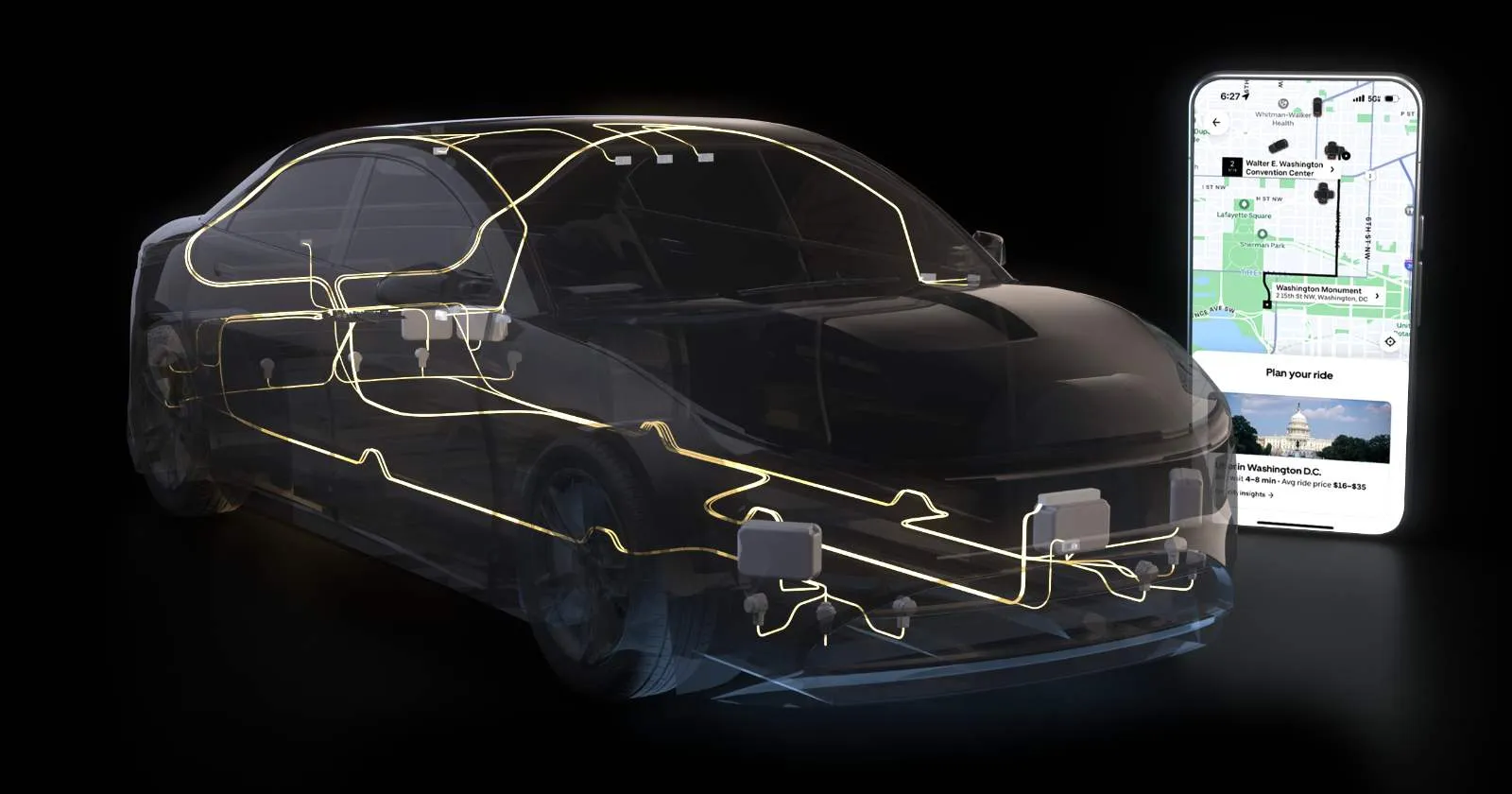
A new global mobility network, in partnership with Uber, is envisioned to integrate autonomous and human-driven cars.
Share Post

A new global mobility network, in partnership with Uber, is envisioned to integrate autonomous and human-driven cars.
Nvidia has just announced a slew of partnerships with automobile manufacturers and industry players, which will work on implementing solutions based on its Drive AGX platforms and software. The goal of L4 autonomous driving will allow human drivers to not only take their hands off the steering wheel, but also will not require full attention and eyes on the road at all times.
The wide-ranging agreement with Uber will see L4 autonomous vehicles coming together with human-driven cars forming a next-gen mobility network for both passengers and deliveries. Beginning in 2027, the companies envision a fleet of 100,000 vehicles globally, also involving other ecosystem partners. The cars will be based on Nvidia’s Drive AGX Hyperion 10 or Drive AGX Thor autonomous vehicle development platform, consisting of an in-car computer and sensor suite, along with Nvidia Drive AV software.
Such a unified network of human-driven and autonomous vehicles will also require a “data factory”, or a high-level, integrated facility that can process and dispatch massive amounts of real-time information as it comes in from diverse sources. According to both companies, this data will also be fed into future autonomous vehicle development efforts.
In a press statement, Jensen Huang, Nvidia founder and CEO said “Robotaxis mark the beginning of a global transformation in mobility — making transportation safer, cleaner and more efficient. Together with Uber, we’re creating a framework for the entire industry to deploy autonomous fleets at scale, powered by Nvidia AI infrastructure. What was once science fiction is fast becoming an everyday reality.”
Companies involved in the global mobility ecosystem include Avride, May Mobility, Momenta, Nuro, Pony.ai, Wayve and WeRide. Nvidia has also announced that Stellantis, Mercedes-Benz, and Lucid will be integrating its Drive AGX offerings into future passenger vehicles.
Mercedes-Benz will implement L4 capabilities first in its next-gen flagship S-Class, intended to assist chauffeurs. The Nvidia Drive AGX Hyperion system will be integrated with its own proprietary MB.OS software platform.
Stellantis will be working on L4 technology to meet autonomous taxi requirements, and will integrate with Uber’s ecosystem. Interestingly, the parent company of Jeep, Citroên, Fiat and Leapmotor recently paused development of its own L3 autonomous system called AutoDrive citing escalating costs, technical challenges, and insufficient customer interest.
US-based Lucid Motors is also on board to offer autonomous driving features using Nvidia’s technology stack, starting with L2++ eyes-on point-to-point navigation in the Lucid Gravity crossover SUV, eventually extending to L4 on upcoming next-generation passenger vehicles. The company will also use Nvidia’s Omniverse digital twin technology and industrial AI offerings for product development and business operations.
On the non-passenger front, Drive AGX will also be used by trucking firms Aurora, Volvo Autonomous Solutions, to power L4 autonomy to transform the long-haul freight operations industry.
Nissan Gravite: 5 Common Features It Misses Out
Acko Drive Team 18 Feb, 2026, 2:49 PM IST
Tesla Announces Production of First Fully Autonomous Cybercab for Taxi Operations
Acko Drive Team 18 Feb, 2026, 1:52 PM IST
Maruti Suzuki e Vitara Full Price List Leaked
Acko Drive Team 18 Feb, 2026, 11:39 AM IST
Most Indian Car Buyers Willing to Spend More on Advanced Tech, Software Features: Report
Acko Drive Team 18 Feb, 2026, 11:31 AM IST
Kia Seltos Hits 6 Lakh Sales In India: How It Stacks Up Against Hyundai Creta And Other SUVs
Acko Drive Team 18 Feb, 2026, 11:16 AM IST
Looking for a new car?
We promise the best car deals and earliest delivery!
